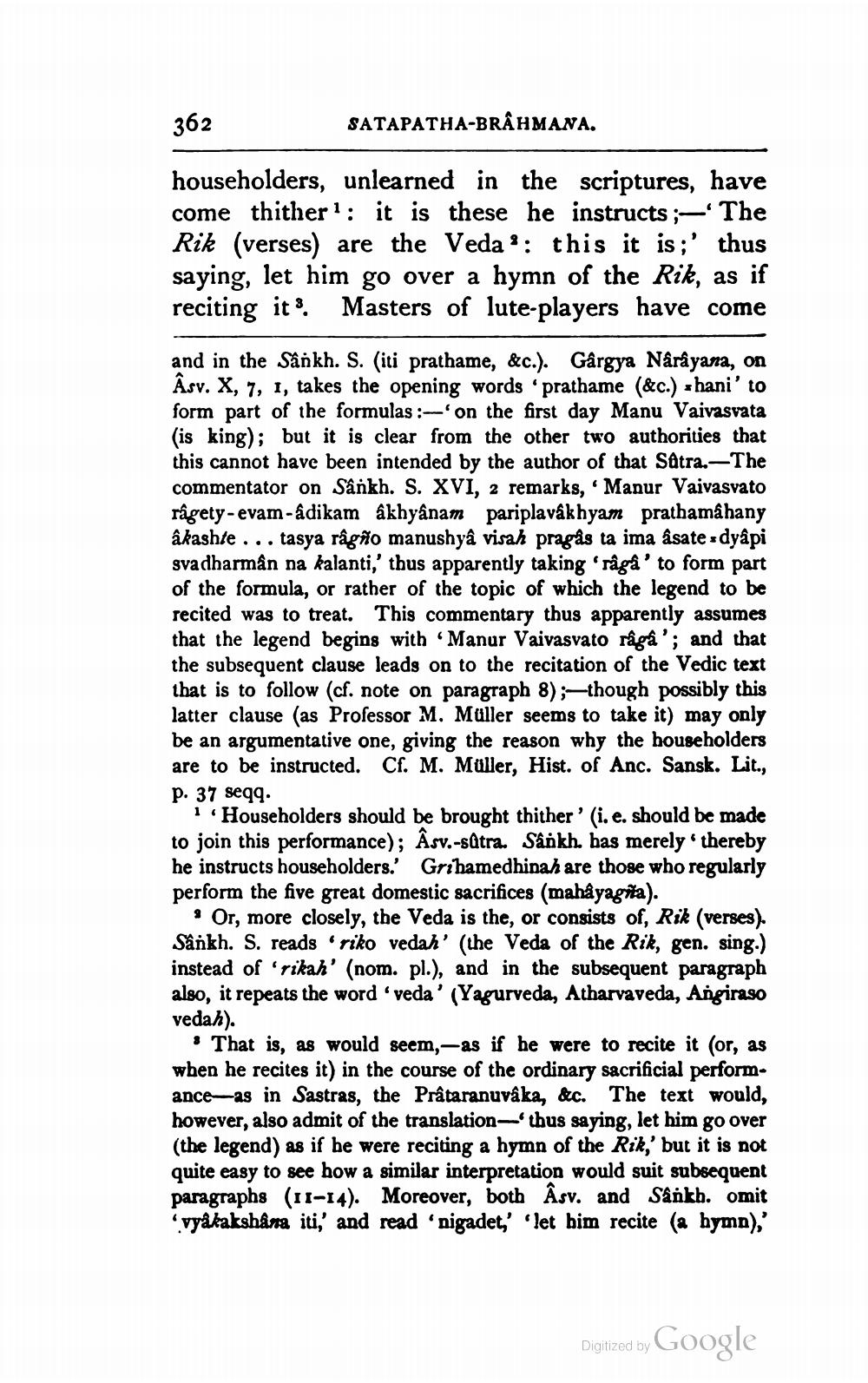________________
362
SATAPATHA-BRAHMANA.
householders, unlearned in the scriptures, have come thither 1: it is these he instructs ;—The Rik (verses) are the Veda': this it is ;' thus saying, let him go over a hymn of the Rik, as if reciting its Masters of lute-players have come
and in the Sânkh. S. (iti prathame, &c.). Gârgya Narayana, on Asv. X, 7, 1, takes the opening words 'prathame (&c.) shani' to form part of the formulas :-'on the first day Manu Vaivasvata (is king); but it is clear from the other two authorities that this cannot have been intended by the author of that Sätra.—The commentator on Sânkh. S. XVI, 2 remarks, Manur Vaivasvato râgety-evam-âdikam akhyanam pariplavák hyam prathamâhany âkashte ... tasya rågño manushyâ visah pragas ta ima ásate sdyâpi svadharman na kalanti,' thus apparently taking 'rågå' to form part of the formula, or rather of the topic of which the legend to be recited was to treat. This commentary thus apparently assumes that the legend begins with Manur Vaivasvato ragâ '; and that the subsequent clause leads on to the recitation of the Vedic text that is to follow (cf. note on paragraph 8);—though possibly this latter clause (as Professor M. Müller seems to take it) may only be an argumentative one, giving the reason why the householders are to be instructed. Cf. M. Müller, Hist. of Anc. Sansk. Lit., p. 37 seqq.
1. Householders should be brought thither' (i.e. should be made to join this performance); Âsv.-sätra. Sankh. has merely thereby he instructs householders.' Grihamedhinah are those who regularly perform the five great domestic sacrifices (mahayagña).
Or, more closely, the Veda is the, or consists of, Rik (verses). Sänkh. S. reads "riko vedah' (the Veda of the Rik, gen. sing.) instead of 'rikah' (nom. pl.), and in the subsequent paragraph also, it repeats the word 'veda' (Yagurveda, Atharvaveda, Angiraso vedas).
: That is, as would seem, -as if he were to recite it (or, as when he recites it) in the course of the ordinary sacrificial performance-as in Sastras, the Prâtaranuvâka, &c. The text would, however, also admit of the translation-thus saying, let him go over (the legend) as if he were reciting a hymn of the Rik,' but it is not quite easy to see how a similar interpretation would suit subsequent paragraphs (11-14). Moreover, both Âsv. and Sankh. omit vyåkakshåna iti,' and read .nigadet,' 'let bim recite (a hymn),'
Digitized by Google




